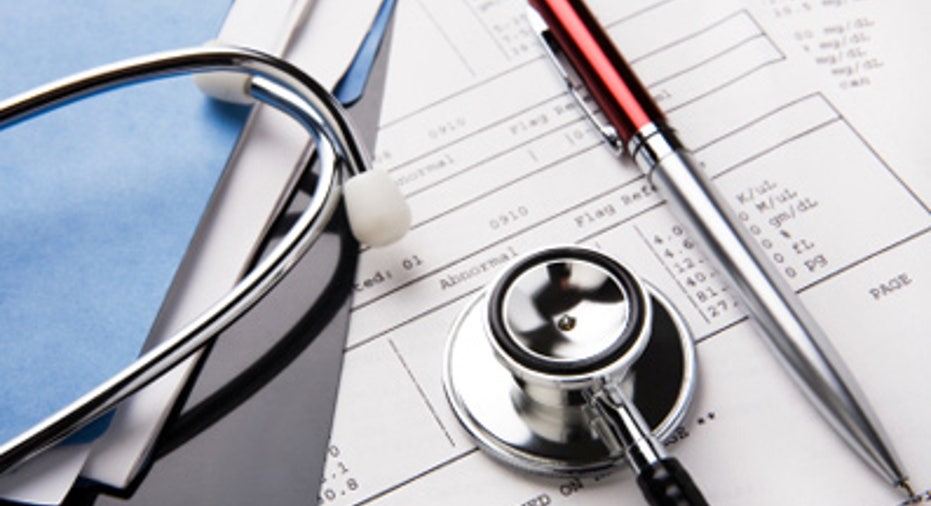New Health-Reform Tax Scares Away Venture Capitalists

Starting January 1, medical-device makers must pay a new 2.3% excise tax on sales, regardless if they make a profit, to raise $30 billion over the next decade to pay for health reform.
Already, venture capital funding in the medical device industry in the third quarter plunged “to the lowest dollar level since 2004,” with just $434 million going into a paltry 65 deals, says a new report from consultancy PricewaterhouseCoopers and the National Venture Capital Association.
That’s a 42% drop in seed money into the sector, and a 27% drop in deals versus the third quarter 2012. (For more, read this.).
The prospect of the new excise tax on gross sales is the biggest cause of this collapse in venture capital investments in the medical-device sector, Allison Giles, a top executive at Cook Medical, the world’s largest privately owned medical-device company, in Bloomington, Indiana, tells FOX Business.
The federal government will now be taking $30 billion out of the industry that develops new treatments to limit patient deaths and suffering. Research and development budgets are now being outsourced to companies overseas, notably Israel.
As FOX Business has reported, already medical technology companies are cutting jobs due to the reductions in R&D budgets in order to pay for the new medical-device tax on sales. Companies that make medical equipment to save lives must pay the excise tax, same as if they were selling cigarettes or alcohol. And they must pay it even if they lose money and post no profits, because the tax is on sales, not income.
Trade association AdvaMed estimates 43,000 jobs will be lost due to the new tax. Also, it will be the little guy who will get slammed, as small companies with few employees are some of the biggest drivers in this sector.
FOX Business last week obtained a letter sent this month to the Senate from executives at more than 800 companies and medical groups demanding the tax be repealed as part of the fiscal cliff deal To read more, click here. (We’ve got more medical professionals weighing in on the unfairness of the medical device tax, see below.)
Cook Medical reached out to 7,000 executives and employees in the industry for their reaction to the new medical-device tax on sales, and here are some responses:
“I have a small medical device manufacturing company here in N.J. We are struggling to keep good manufacturing jobs here in N.J. and the U.S. The new Medical Device Excise Tax will be a DEVASTATING blow to our company. Since it is based on gross revenues, and our profits are already so squeezed by foreign competition, this tax is a SEVERE hardship - especially to a small company like ours. It also decimates potential investment in new technologies we are developing. I have several patents on new medical devices, which could bring more jobs to N.J and the U.S., but investors are fleeing the medical device area because of the unfavorable conditions we are facing, like this new tax.”--Andre DiMino, founder ADM Tronics, Northvale, N.J.
“This will ruin my business and force me to cut employees after I spent the past few years creating precious jobs in a down economy in a rural area,”--Eric Smith, Valencia Family Dental, Los Lunas, New Mexico.
“I have been a medical sales recruiter for over 25 years and I am seeing firsthand what the 2.3% excise tax is doing to eliminate jobs and opportunities in the medical device market place. This tax is a job killer and positions are being eliminated at a rapid rate with medical device manufacturers. When market leading companies such as Medtronic, St. Jude, Stryker and others are eliminating hundreds and even 1,000 jobs as with Stryker, you know this tax is killing the medical device economy. This tax is anti-jobs and pro-tax and it is sad to see how many people are being affected by it across the country. Repeal it now please!” -- William Pearce, a medical industry recruiter, Wisconsin
“We are a small company that provides good wages and benefits, but those jobs are at risk. We estimate that the 2.3 device tax on gross sales in conjunction with income tax will consume roughly 80% of our gross profit. In order to pay for this, all product development has been stopped. Marketing has been reduced and our ability to grow and expand and create jobs has been eliminated. Furthermore, we cannot invest any profits into new development because the option of having a breakeven year by re-investing is gone. We must pay the tax regardless of profitability or go out of business.”-- David Mrak director of product development, BioPro, Detroit, Mich.
“Our business is being adversely impacted by the impending tax. We employ nearly 200 people in quality high-tech science and engineering jobs providing outsourced research and development services to medical device manufacturers across the country. The prospect of the device tax taking effect next year is causing our customers to cut back on R&D spending, directly impacting our business. As a result, I am being forced to scale back our hiring plan. Not only will the device tax adversely impact innovation in an industry in which the US has been a global leader, it is impacting U.S. businesses and U.S. jobs right now, today.”-- Eric Claude, general manager, MPR Assoc., Alexandria, Virginia
“Army Veteran, Bronze Star recipient, changed careers to medical device and was laid off eight months into career because positions were eliminated to try to remain profitable. Moved to Phoenix for this job, three children and wife is nine months pregnant with fourth child. Trying to find work in this economy but other companies also laid off employees so there are less positions available.”--Micah Stott, former market development specialist, Acclarent.



















